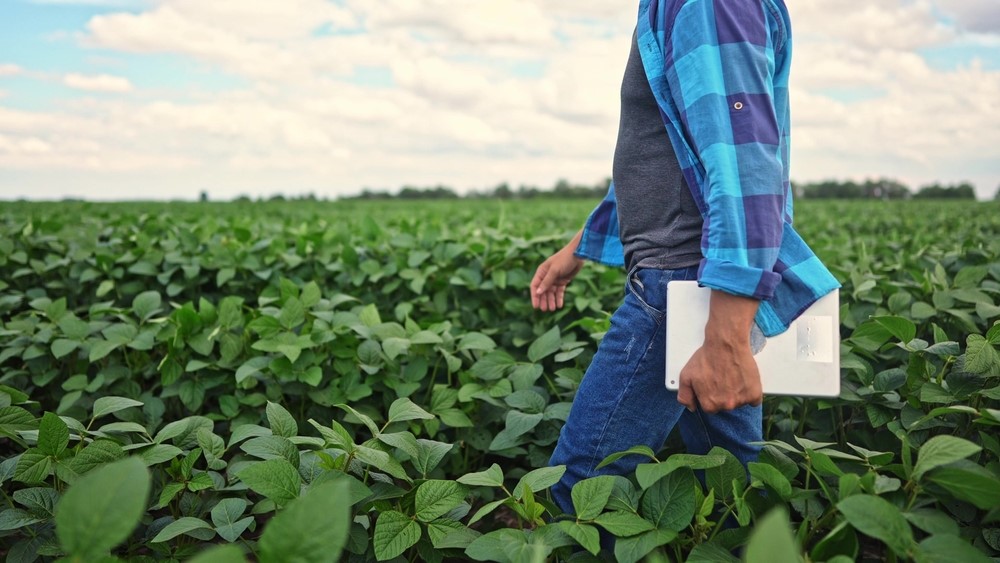Western's Farm Insurance Has Roots in Our Communities


Mark Missal, Director, Sales, in Saskatchewan for Western Financial Group, answers our questions about farm insurance and what it covers.
Why should farmers choose Western Financial Group for their farm insurance? What positives does Western bring to farmers who are insured with us?
Western Financial Group has its roots in smaller communities and its brokers have farm experience or a farming background, which allows the broker to understand the farmer better. We have access to multiple carriers, staff is knowledgeable, and customer service is our number one priority. Being mainly in rural or smaller cities gives us access through our existing client base to many different farming operation scenarios and personally knowing our clients. We have many farm brokers that have access to each other to draw on their knowledge to help find the best products for all sorts of risks, as each client is different from the last as well as the next.
How does farm insurance protect farmers from severe weather? What is covered and what is not?
It depends on the situation what is covered and what isn’t. Common perils that can be covered by farm insurance are flood, wind, hail, tornadoes, and fires but coverage can vary based on the age and condition of outbuildings and bins. We suffer many types of weather events across the Prairies, from wildfires to lightning storms, torrential rains causing flooding issues, and damaging wind or hail that can all cause catastrophic damage to property. All of these events could possibly be covered depending on location and weather mapping that each insurer uses.
But liability insurance is one of the most important coverages farm insurance provides. Not Covered: Some policies may exclude certain types of damage or have specific limitations, such mice damage to machinery or cosmetic damage to a farm building from hail.
Why should farmers get crop hail insurance? What are the benefits?
Crop hail insurance provides specific coverage for physical damage caused by hail, ensuring farmers can recover financially from unexpected hailstorms. It can provide peace of mind and financial security for potential crop losses. Farmers should get crop hail insurance so that they can have peace of mind that all of their hard work and investment that they have put towards their crop inputs will provide them coverage in the event of a hailstorm.
Additional coverage: Many policies also cover grain for fire, lightning, theft, and vandalism.
Why is general liability insurance important in a farm insurance policy?
It is very important to have farm liability insurance because it protects the farm from financial losses due to their operations whether cattle get out and cause damage or the neighbour’s field has been accidentally sprayed. It will cover medical costs, legal fees, and damages awarded in a lawsuit.
General liability insurance protects farmers from financial losses due to third-party claims of injury or property damage related to farm operations. Examples: A cow gets out and crosses the road and a vehicle collision occurs or a fire gets out of control and damages someone else’s property. This type of insurance covers legal fees and settlements, providing peace of mind and safeguarding the farm's assets.
Liability insurance is also needed for incidents that are off farm property during the movement of equipment. Here’s an example where liability insurance would come into play: A farmer hits a public service line in their field. Liability risks can far outweigh a property loss of a tractor or building, which could be hundreds of thousands of dollars. An injury to a farm visitor could cost millions of dollars.
General liability insurance is important on a farm insurance policy so it will protect the insured for potential property damage and bodily injury that could occur on or off the premises, such as running into someone on the road with farm machinery, hitting a power pole when seeding, or driving down the road with unlicensable vehicles.
How does farm insurance cover the farming family’s home and possessions? Is farm insurance like home and business insurance together in one policy?
It can cover the family home and belongings the same as any urban family, put together in one package to encompass the entire farming business with the family home and belongings, or in separate policies if the client so wishes. The only thing I make sure to review with the carrier is the limit of firefighting expense because it’s not automatically covered due to a rural location. The main reason to have any insurance is to indemnify you, which puts you in the position prior to loss no more/no less and help you live a little easier knowing there is financial assistance after a loss to help you recover faster.
Should farmers have firefighting expense coverage as part of their farm insurance?
Yes, it is critical to have this coverage and to make sure you know what your local firefighting department call-out fee is because each rural municipality (RM) is different and if another department gets called out in the case of a larger fire, you will be on the hook for their call-out fee as well.
Firefighting expense coverage covers fires that start from equipment in the field, which is very common. Most farm insurance carriers do not include firefighting expenses as part of their included coverages or if they do, the coverage is limited to the farmyard/dwelling. I always add the coverage to my insurance quotes and confirm that it will cover the land the farmer owns/rents from grass/grain fires.
I highly recommend this coverage because it would go towards any bill for the fire department to come out to try to save your property, which could run into the tens of thousands of dollars quite easily. The cost for this coverage is minimal, especially when you consider what the cost could be in the event of a fire. The cost to fight fires has been growing substantially. Some farm policies include this coverage automatically, but in the event of a fire the farmer will be responsible for the fire department when it is on their land whether they call in the fire or not and when there is a fire more than likely the farm machinery or outbuildings will be affected. It’s worth it financially to put a claim in even though you are losing your claims free discount in most cases.
How does farm insurance cover grain bins?
Farm insurance covers grain bins based on the type of structure and whether it is anchored or not. There is no coverage for earth movement, but there can be coverage for collapse, fire, wind, hail (if it punctures the bin), and if it is run into by a land vehicle, aircraft, or spacecraft. For the most part, it covers bins the same as any other farm building, often with options available for various levels of coverage. Different rates can apply if they are permanently mounted or anchored in an approved way, but it depends on the bin. Coverage is restricted if the bin is not anchored to the ground with approved anchors and no carrier will cover if the bin is knocked over due to wind. If it is anchored, then coverage will include wind. I always inform my clients as well that earth movement is NOT covered by any farm insurance carrier.
Comprehensive coverage: Farm insurance can provide scheduled or blanket coverage for grain bins, protecting against damage from storms and other perils. Regular evaluation: It's important to regularly review and update the policy to ensure adequate coverage for grain bins.
Do farm operations, such as cattle, chicken, or cash crops, affect what kind of farm insurance is needed?
Different farm operations require specific types of farm insurance coverage. For example, livestock operations may need animal collision insurance, while crop farms might focus on crop insurance.
Risk management: Tailoring insurance to specific activities and risks ensures comprehensive protection. You must let the insurer know what type of farming operation(s) the insured has because this affects the rating for liability.
Different coverages may be needed; for example, crop coverage can be inputs and outputs like chemical fertilizer and grain, whereas with animals you might want mortality insurance or coverage for embryos. There are so many different variables so each policy can be tailored to the risk and the exposure each client may have.



